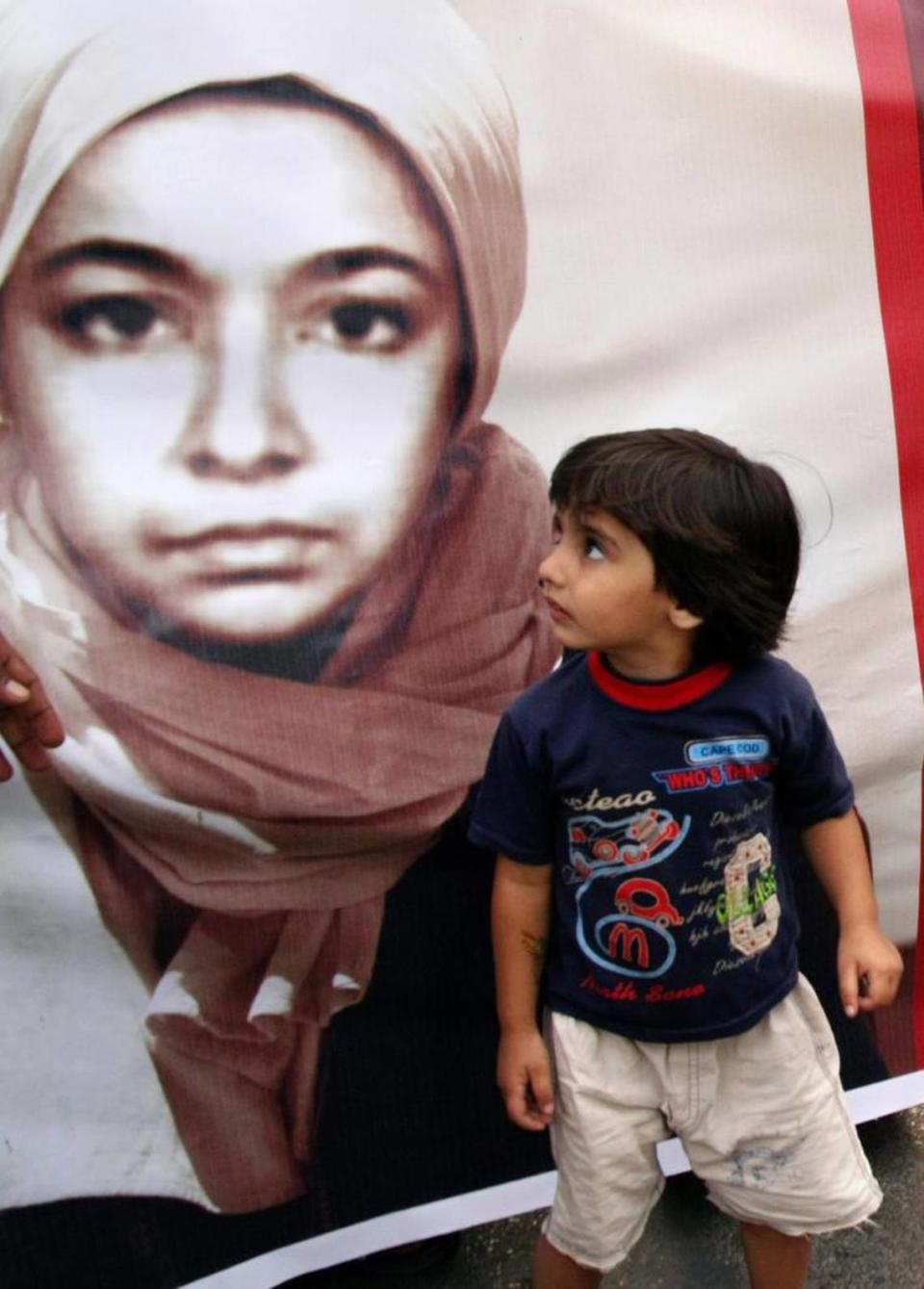Pakistani woman whose conviction motivated hostage crisis spurns violence, lawyer says
A woman whose imprisonment in Fort Worth appears to have motivated a man to hold hostages at a synagogue near the city on Saturday has previously rejected violent efforts of support, her attorney said.
President Joe Biden said on Sunday that the suspect, Malik Faisal Akram, “insisted on the release of someone who’s been in prison for over 10 years,” referring to Aafia Siddiqui, a Pakistani neuroscientist who fired a gun upon U.S. soldiers in Afghanistan and was convicted in the case in 2008. No one was shot beyond Siddiqui, who was injured when a soldier returned fire.
“I can state unequivocally that she condemns all forms of violence,” Marwa Elbially, Siddiqui’s attorney, said.
Akram held four people at Congregation Beth Israel in Colleyville and died when FBI special agents entered the building, authorities said. The hostages were not injured.
It was not clear if Siddiqui was aware of the hostage crisis.
Her access to information at the Federal Medical Center-Carswell prison is limited. Elbially said she had not communicated this weekend with her client.

At her sentencing, Siddiqui said that she did not “want violence in my name,” Elbially said.
A Council on American-Islamic Relations representative said on Saturday that people connected with efforts to challenge Siddiqui’s conviction are not familiar with Akram. It appeared, they said, that he had not previously been involved in demonstrations on her behalf.
Elbially acknowledged that Siddiqui had suggested during jury selection at her trial that she did not want Jews to serve on the panel.
“There were inappropriate statements that were made at that trial,” the attorney said.
Siddiqui was convicted on charges related to the attempted murder and assault of United States officers and employees. An interpreter lunged at her and pushed away a rifle she had grabbed from a U.S. Army officer as Siddiqui pulled the trigger, according to law enforcement authorities. Siddiqui fired at least two shots. The rounds did hit anyone. An Army officer shot Siddiqui.
In Pakistan, Siddiqui is described as a heroine and martyr. Her relatives and other supporters say the mother of three was falsely accused and used as a scapegoat after the Sept. 11, 2001, attacks.

